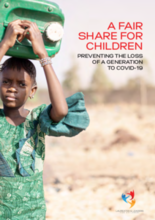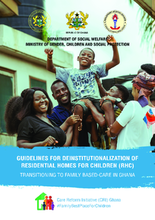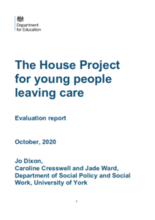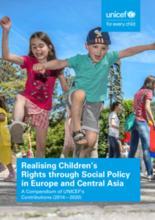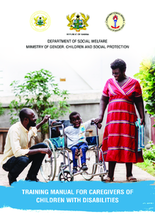Demographic Data:
|
Sources: World Bank, UNICEF, UNDP HDR 2015, DHS 2013/2014 |
Displaying 3381 - 3390 of 14348
This report calls on world leaders to come together and agree a global package to help low income countries and ensure the most vulnerable to the COVID-19 crisis receive at least some support.
This research explores the stress children in World Vision programmes in the Middle East and Eastern Europe region are under due to COVID-19.
This document is aimed at complementing the Standard Operating Procedures (SOPs) for Licensing, Monitoring and Closure of Residential Homes for Children (RHC) by supporting the implementation of the closure of RHCs that have not been licensed or do not meet the standards in the SOPs.
No reconocimiento de Kafala constituida entre ciudadanos marroquíes a efectos de adopción. Antecedentes y alcance de la prohibición contenida en el artículo 19.4 de la Ley de adopción internacional.
This Russian language Compendium documents UNICEF’s social policy interventions in Europe and Central Asia from 2014-2020 and includes 18 case studies from 15 different countries as well as stories from the field.
This report presents findings from a survey conducted across the Europe and Central Asia Region which aimed to enhance understanding of the use of digital platforms for child protection.
This report presents findings from an evaluation of the House Project (HP) in the U.K., which aims to improve outcomes for young people (in accommodation, education, employment and training (EET), wellbeing, autonomy and integration) and service level outcomes for young people leaving care aged 16 and over.
This Compendium documents UNICEF’s social policy interventions in Europe and Central Asia from 2014-2020 and includes 18 case studies from 15 different countries as well as stories from the field.
This Training Manual for Caregivers of Children with disabilities has been developed to equip caregivers of children with disabilities (which include biological parents, foster parents, adoptive parents, caregivers in institutions, caregivers in day care centers, healthcare providers, teachers of special needs schools, etc.) with the needed knowledge and skill in order for them to be able to provide the required quality of care for the children for them to grow and develop well and become productive in society.
This paper draws upon findings from a study which followed families through the process of pre-birth child protection assessment. It is argued that it is necessary to engage critically with the ‘first three years’ narrative that has become dominant in Scottish policy making and the impact this has had on child protection practice and the lives of families. The paper argues for a broader interpretation of ACEs focused on community and public health across the life course.

